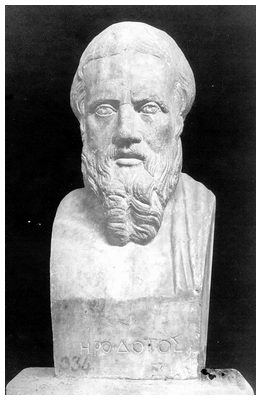June 18
1815 - The Battle of Waterloo: British and Prussian forces defeated Napoleon.
The French Revolution and Napoleonic Age came to an end at Waterloo, and began a new day of British and Prussian/German hegemony in Europe (around the globe for the Brits)...The brilliant Emperor was finally defeated, and the names of Wellington and Blucher found their way into the realm of greatness in military history as a result of this victory.
I still can't believe they didn't execute Napoleon, however.
1538 - The Treaty of Nice: 'Peace' was agreed on by Charles V (Holy Roman Empire and Spain) and Francis I (France).
Those familiar with the period know this was a worthless piece of paper, because there were rarely consecutive days of peace between France and the Empire, let alone anything resembling a real peace...And the only reason Charles agreed to this peace was because he was feeling too much heat from the east in the Ottomans, and at home among his own German princes.
1812 - The War of 1812 began: The U.S. Congress declared war against Britain for repeated violations of American rights to the sea, and the incitement of Indians on the frontier.
The War of 1812 was nothing short of a continuation of the Revolutionary War. Is should be seen as a last ditch effort by the Brits to reclaim their former colonies, and a second chance for the former colonists to show they would never return to British rule, nor be treated like dogs by the Empire.
1878 - The Posse Comitatus Act passed, making it a felony to willfully use "any part of the Army...to execute the laws" except where expressly authorized by the Constitution or by act of Congress.
When used properly, the Army has more than enough on its plate, and domestic law enforcement should be left to the various police agencies (including the FBI).
That said, the law was revised in 1981 "to permit increased Department of Defense support of drug interdiction and other law enforcement activities," and revised again after 9/11/01 to increase the military's role in the War on Terror...Lets hope we never have to use our military on our soil, but that day is always a possibility.
1900 - Empress Tsu-tse ordered the Boxers to expel all foreigners from China.
This order turned out very badly for the Chinese, who were defeated by the Western powers, lost many of its traditional territories, and handed over its last shreds of hegemony in the East to Japan.
1940 - Winston Churchill urged perseverance among the British people so future generations would remember "this was their finest hour."
“...What General Weygand called the Battle of France is over. I expect that the Battle of Britain is about to begin. Upon this battle depends the survival of Christian civilization. Upon it depends our own British life, and the long continuity of our institutions and our Empire. The whole fury and might of the enemy must very soon be turned on us. Hitler knows that he will have to break us in this Island or lose the war. If we can stand up to him, all Europe may be free and the life of the world may move forward into broad, sunlit uplands. But if we fail, then the whole world, including the United States, including all that we have known and cared for, will sink into the abyss of a new Dark Age made more sinister, and perhaps more protracted, by the lights of perverted science. Let us therefore brace ourselves to our duties, and so bear ourselves that if the British Empire and its Commonwealth last for a thousand years, men will still say, 'This was their finest hour.'"
The Brits never wanted to see Churchill in the seat of power - until they needed to fight for their very existence. Then they knew they had to bring him in...And fight is exactly what he did - alone, until the Germans and Japanese were ignorant enough to bring the Russians and U.S. into the war.
The French Revolution and Napoleonic Age came to an end at Waterloo, and began a new day of British and Prussian/German hegemony in Europe (around the globe for the Brits)...The brilliant Emperor was finally defeated, and the names of Wellington and Blucher found their way into the realm of greatness in military history as a result of this victory.
I still can't believe they didn't execute Napoleon, however.
1538 - The Treaty of Nice: 'Peace' was agreed on by Charles V (Holy Roman Empire and Spain) and Francis I (France).
Those familiar with the period know this was a worthless piece of paper, because there were rarely consecutive days of peace between France and the Empire, let alone anything resembling a real peace...And the only reason Charles agreed to this peace was because he was feeling too much heat from the east in the Ottomans, and at home among his own German princes.
1812 - The War of 1812 began: The U.S. Congress declared war against Britain for repeated violations of American rights to the sea, and the incitement of Indians on the frontier.
The War of 1812 was nothing short of a continuation of the Revolutionary War. Is should be seen as a last ditch effort by the Brits to reclaim their former colonies, and a second chance for the former colonists to show they would never return to British rule, nor be treated like dogs by the Empire.
1878 - The Posse Comitatus Act passed, making it a felony to willfully use "any part of the Army...to execute the laws" except where expressly authorized by the Constitution or by act of Congress.
When used properly, the Army has more than enough on its plate, and domestic law enforcement should be left to the various police agencies (including the FBI).
That said, the law was revised in 1981 "to permit increased Department of Defense support of drug interdiction and other law enforcement activities," and revised again after 9/11/01 to increase the military's role in the War on Terror...Lets hope we never have to use our military on our soil, but that day is always a possibility.
1900 - Empress Tsu-tse ordered the Boxers to expel all foreigners from China.
This order turned out very badly for the Chinese, who were defeated by the Western powers, lost many of its traditional territories, and handed over its last shreds of hegemony in the East to Japan.
1940 - Winston Churchill urged perseverance among the British people so future generations would remember "this was their finest hour."
“...What General Weygand called the Battle of France is over. I expect that the Battle of Britain is about to begin. Upon this battle depends the survival of Christian civilization. Upon it depends our own British life, and the long continuity of our institutions and our Empire. The whole fury and might of the enemy must very soon be turned on us. Hitler knows that he will have to break us in this Island or lose the war. If we can stand up to him, all Europe may be free and the life of the world may move forward into broad, sunlit uplands. But if we fail, then the whole world, including the United States, including all that we have known and cared for, will sink into the abyss of a new Dark Age made more sinister, and perhaps more protracted, by the lights of perverted science. Let us therefore brace ourselves to our duties, and so bear ourselves that if the British Empire and its Commonwealth last for a thousand years, men will still say, 'This was their finest hour.'"
The Brits never wanted to see Churchill in the seat of power - until they needed to fight for their very existence. Then they knew they had to bring him in...And fight is exactly what he did - alone, until the Germans and Japanese were ignorant enough to bring the Russians and U.S. into the war.
Labels: Charles V, China, Churchill, Europe, France, Germany, HRE, Napoleon, Spain, UK, US, War of 1812, WWII

 NOTE: The editorial content of this blog is the property of the Blog Owner...Feel free to quote from the editorial content, but please give proper credit and linking.
NOTE: The editorial content of this blog is the property of the Blog Owner...Feel free to quote from the editorial content, but please give proper credit and linking.
0 Comments:
Post a Comment
<< Home